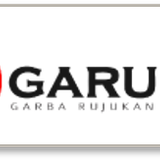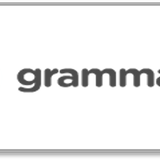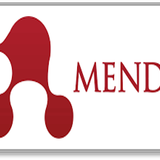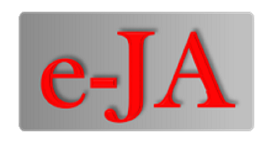Cost Reduction Strategy In Manufacturing Industries Empirical Evidence From Indonesia
DOI:
https://doi.org/10.24912/ja.v28i1.1747Abstract
The COVID-19 pandemic has forced manufacturing industries to be efficient in multiple fields. This study examines the effect of raw material management using Material Flow Cost Accounting and waste cost for Non-Product Output cost on implementing cost reduction strategies. Data was gathered by analyzing annual financial reports as well as sustainability reports. The study finds that organizations can reach efficiency by managing the cost of the raw materials using Material Flow Cost Accounting and Non-Product Output costs when implementing a cost reduction strategy. The research contributes to developing the concept of cost reduction through the Environmental Management Accounting approach, which is still rare in this field, in addition to the traditional method of cost accounting that organizations have carried out to achieve cost efficiency.
References
Akhter, F., Hossain, M. R., Elrehail, H., Rehman, S. U., & Almansour, B. (2022). Environmental Disclosures And Corporate Attributes, From The Lens Of Legitimacy Theory: A Longitudinal Analysis On A Developing Country. European Journal of Management and Business Economics. https://doi.org/10.1108/EJMBE-01-2021-0008.
Bartolacci, F., Bellucci, M., Corsi, K., & Soverchia, M. (2022). A Systematic Literature Review Of Theories Underpinning Sustainability Reporting In Non-Financial Disclosure. In SIDREA Series in Accounting and Business Administration: Vol. Part F28 (pp. 87–113). Springer Nature. https://doi.org/10.1007/978-3-030-90355-8_4.
Bokhan, K., & Romanenko, M. (2021, March 30). How To Drive Cost Reduction In The Manufacturing Industry. N-IX. https://www.n-ix.com/cost-reduction-manufacturing-industry/.
Chelli, M., Durocher, S., & Fortin, A. (2019). Substantive And Symbolic Strategies Sustaining The Environmentally Friendly Ideology: A Media-Sensitive Analysis Of The Discourse Of A Leading French Utility. Accounting, Auditing and Accountability Journal, 32(4), 1013–1042. https://doi.org/10.1108/AAAJ-02-2018-3343.
Christ, K. L., & Burritt, R. L. (2015). Material Flow Cost Accounting: A Review And Agenda For Future Research. In Journal of Cleaner Production 108, 1378–1389. Elsevier Ltd. https://doi.org/10.1016/j.jclepro.2014.09.005.
Christ, K. L., & Burritt, R. L. (2016). ISO 14051: A New Era For MFCA Implementation And Research. Revista de Contabilidad-Spanish Accounting Review, 19(1), 1–9. https://doi.org/10.1016/j.rcsar.2015.01.006.
Dunuwila, P., Rodrigo, V. H. L., & Goto, N. (2018). Sustainability Of Natural Rubber Processing Can Be Improved: A Case Study With Crepe Rubber Manufacturing In Sri Lanka. Resources, Conservation and Recycling, 133, 417–427. https://doi.org/10.1016/j.resconrec.2018.01.029.
Gnanaweera, K. A. K., & Kunori, N. (2018). Corporate Sustainability Reporting: Linkage Of Corporate Disclosure Information And Performance Indicators. Cogent Business and Management, 5(1). https://doi.org/10.1080/23311975.2018.1423872.
Gutterman, A. S. (2023). Stakeholder Theory. In Stakeholder Theory (1–19). www.giirs.org.
Hakimi, A., Abedi, Z., & Dadashian, F. (2021). Increasing Energy And Material Consumption Efficiency By Application Of Material And Energy Flow Cost Accounting System (Case Study: Turbine Blade Production). Sustainability (Switzerland), 13(9). https://doi.org/10.3390/su13094832.
Higashida, A. (2020). Supply Chain MFCA Implementation: Emphasizing Evidence On Coordination. Sustainability Accounting, Management and Policy Journal, 12(4), 695–718. https://doi.org/10.1108/SAMPJ-03-2019-0104.
Kelp, R., Becker, H., & Narsana, T. (2020). Managing Costs In Times Of COVID-19 Focus On Transformation, Rather Than Reactive Cost-Cutting In Manufacturing Industries.
Kokubu, K., Kitada, H., Nishitani, K., & Shinohara, A. (2023). How Material Flow Cost Accounting Contributes To The SDGs Through Improving Management Decision-Making. Journal of Material Cycles and Waste Management. https://doi.org/10.1007/s10163-023-01696-7.
Kurniawan, P. P., & Hasibuan, S. (2022, March 7). A Hybrid BWM-SCOR Method For Analysis Electronic Manufacturing Supply Chain Elements That Affected With COVID-19 Pandemic Keywords. International Conference on Industrial Engineering and Operation Management. https://www.researchgate.net/publication/365315887.
Mahmoudi, E., Jodeiri, N., & Fatehifar, E. (2017). Implementation Of Material Flow Cost Accounting For Efficiency Improvement In Wastewater Treatment Unit Of Tabriz Oil Refining Company. Journal of Cleaner Production, 165, 530–536. https://doi.org/10.1016/j.jclepro.2017.07.137.
Mahmud, T. (2019). Legitimacy Theory And Its Relationship To CSR Disclosures: A Literature Review. In Kyushu University (1–16). Kyushu Univesity. https://doi.org/10.15017/2230676.
Otoritas Jasa Keuangan. (2017). POJK No.51/POJK.03/2017 Tentang Penerapan Keuangan Berkelanjutan Bagi Lembaga Jasa Keuangan, Emiten Dan Perusahaan Publik. In OJK. OJK.
Oxford Business Group. (2020). New Policy And Incentives Encourage Tech Innovation And Manufacturing In Indonesia. Oxford Business Group. https://oxfordbusinessgroup.com/reports/indonesia/2019-report.
Rossi, M., Rossini, M., & Terzi, S. (2019). Lecture Notes In Networks And Systems. http://www.springer.com/series/15179.
Rounaghi, M. M., Jarrar, H., & Dana, L.-P. (2021). Implementation Of Strategic Cost Management In Manufacturing Companies: Overcoming Costs Stickiness And Increasing Corporate Sustainability. Future Business Journal, 7(1). https://doi.org/10.1186/s43093-021-00079-4.
Solikhah, B., & Maulina, U. (2021). Factors Influencing Environment Disclosure Quality And The Moderating Role Of Corporate Governance. Cogent Business and Management, 8(1). https://doi.org/10.1080/23311975.2021.1876543.
Tran, T. T., & Herzig, C. (2020). Material Flow Cost Accounting In Developing Countries: A Systematic Review. Sustainability (Switzerland), 12(13). https://doi.org/10.3390/su12135413.
Tu, J. C., & Huang, H. S. (2019). Relationship Between Green Design And Material Flow Cost Accounting In The Context Of Effective Resource Utilization. Sustainability (Switzerland), 11(7). https://doi.org/10.3390/su11071974.
Vinodh, S. (2023). Lean Manufacturing; Fundamentals, Tools, Approaches, and Industry 4.0 Integration. CRC Press, Taylor & Francis Group.
Walz, M., & Guenther, E. (2021). What Effects Does Material Flow Cost Accounting Have For Companies?: Evidence From A Case Studies Analysis. Journal of Industrial Ecology, 25(3), 593–613. https://doi.org/10.1111/jiec.13064.
Wang, Y. X., Kuo, C. H., Song, R., Hu, A. H., & Zhang, S. S. (2017). Potentials For Improvement Of Resource Efficiency In Printed Circuit Board Manufacturing: A Case Study Based On Material Flow Cost Accounting. Sustainability (Switzerland), 9(6). https://doi.org/10.3390/su9060907.
Weyand, A., Rommel, C., Zeulner, J., Sossenheimer, J., Weigold, M., & Abele, E. (2021). Method To Increase Resource Efficiency In Production With The Use Of MFCA. Procedia CIRP Science Direct, 98, 264–269. https://doi.org/10.1016/j.procir.2021.01.101.
Yagi, M., & Kokubu, K. (2019). Waste Decomposition Analysis In Japanese Manufacturing Sectors For Material Flow Cost Accounting. Journal of Cleaner Production, 224, 823–837. https://doi.org/10.1016/j.jclepro.2019.03.196.
Zyznarska-Dworczak, B. (2018). Legitimacy Theory In Management Accounting Research. Problemy Zarzadzania, 16,1(72), 195–203. https://doi.org/10.7172/1644-9584.72.12.
Downloads
Published
How to Cite
Issue
Section
License
Copyright (c) 2024 Jurnal Akuntansi

This work is licensed under a Creative Commons Attribution-NonCommercial-ShareAlike 4.0 International License.
This journal provides immediate open access to its content on the principle that making research freely available to the public supports a greater global exchange of knowledge.

This work is licensed under a Creative Commons Attribution-NonCommercial-ShareAlike 4.0 International License



















